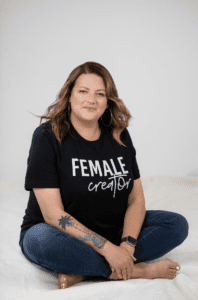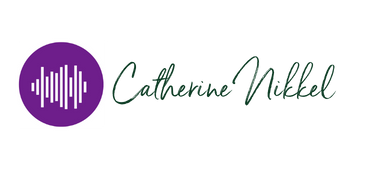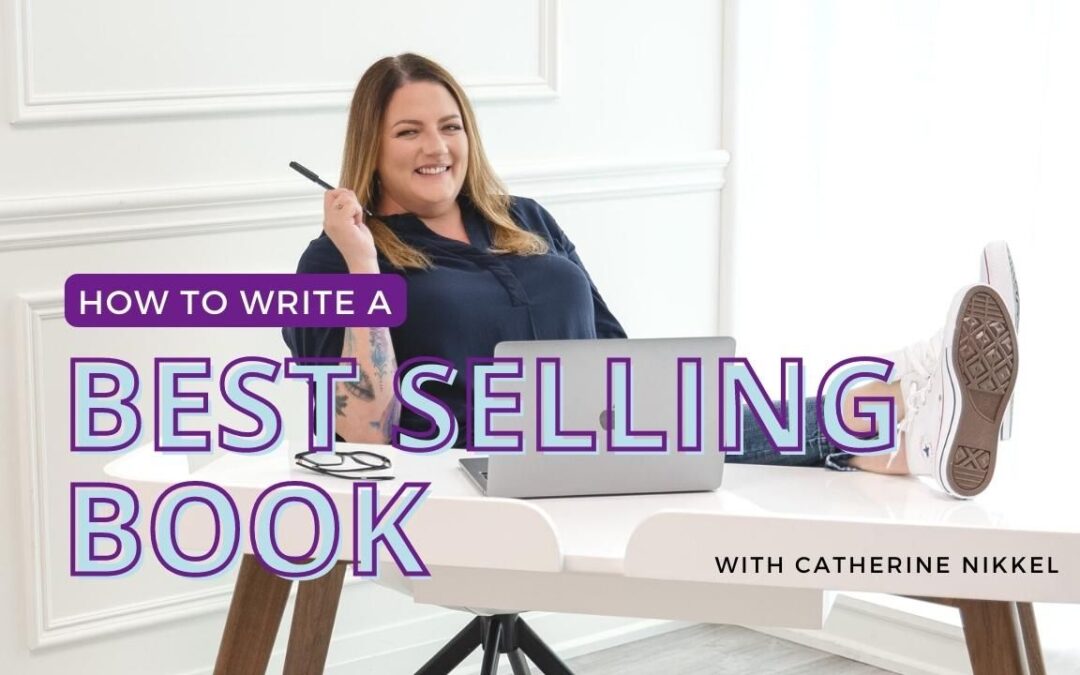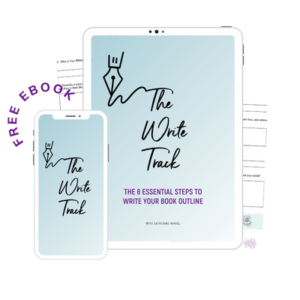The Foundation: Idea, Research, and Planning
It would be best to have a compelling story idea before you start writing a best-selling book. But where do fiction writers get their story ideas? Many fiction writers draw inspiration from their life experiences, dreams, observations, and other literary works. A bestselling author can weave an ordinary idea into an extraordinary tale.
Have A Solid Idea Of What Your Book Is About
Begin with a solid story idea. You might start writing from a tiny seed of a book idea, allowing it to bloom in the fertile soil of your creativity. But remember that not all story ideas will lend themselves to becoming a bestselling novel. This is where market research can be invaluable.
Know And Understand Your Audience
Understanding your target audience is key to maintaining the reader’s interest. Successful authors know their audience inside out. For instance, if you’re writing a romance novel, your target audience might be women in their 20s and 30s. If your book doesn’t appeal to this demographic, it’s unlikely to become a bestseller.
Research, Research, Research
The next step is market research once you’ve identified your target audience. It will help if you read books in your chosen genre to understand what makes a bestseller. It’s beneficial to study bestselling authors and their writing styles. Dan Brown, the author of the best-selling “Da Vinci Code,” used short chapters to keep readers engaged. He also used a mix of first-person and third-person narrative styles to keep the story moving.
Sketch Out Your Book, Characters, And Setting
After the idea and research come to the planning stage. It is here that most writers say you’ll begin to sketch out your main character, plot, and setting. Character development is crucial to creating a compelling story. Your main character should be relatable, flawed, and real.
So many writers must pay more attention to this crucial part of the creative process. A good story can fall flat if the characters aren’t well-developed. Other writers might spend countless writing sessions meticulously plotting out every detail of their story.
Lastly, decide on your writing space. This should be a place where you feel comfortable and inspired. The best-selling author, J.K. Rowling, wrote much of the first “Harry Potter” book in a local coffee shop. Your writing space could be anywhere from a home office to your local bookstore.
By the end of this foundational stage, you should have a story idea, a clear picture of your target audience, a market research plan, a rough idea for your main character, and a conducive writing space. Now, you’re ready to start the actual writing process to create and write a bestselling novel.
Remember, writing a best-selling book is a marathon, not a sprint. Be patient and allow yourself to enjoy writing. Becoming a successful author won’t happen overnight. Still, with dedication and perseverance, you can write a book that captures the reader’s attention and keeps them turning the pages.
Crafting Your Story: The Writing Process
Starting the actual writing is often a significant leap for would-be authors. It’s one thing to write and to have a story idea; it’s another thing entirely to start writing and writing that bestselling book.
Schedule Your Writing, And Stick To It
To begin, establish a serious writing time schedule. Consistent writing sessions are the lifeblood of the writing process. Make your writing time a part of your daily routine. Some successful authors recommend writing simultaneously every day to create a habit. While the word count may vary, the crucial factor is consistency. Jodi Picoult, a best-selling author, has said she aims for a word count of 1,000 words daily.
Just Write
The writing process itself should begin with a first draft. Don’t be too self-critical at this stage; the purpose of a first draft is to get your thoughts on paper. As Anne Lamott, another bestselling author, suggests in her book ‘Bird by Bird,’ write a ‘shitty first draft.’ Let the words flow and focus on telling your particular story. Remember, no one writes a best-selling book in the first draft.
What’s Your Style
In your writing process, pay attention to your writing style. The writing style is the voice readers ‘hear’ when they read your work. It should be unique to you, but also consider the preferences of your target audience. If you’re writing a fast-paced thriller, your writing style should reflect the intensity and speed of the story. If you’re writing a romance novel, your style might be more descriptive and evocative.
As you write, the main character and plot will evolve. The best-selling author George R.R. Martin has spoken about characters ‘taking on a life of their own’ as the writing process progresses. This is a natural part of the creative process. Allow it to happen, and adjust your storyline as needed.
Stumbling Is Part Of The Process
Many writers experience writer’s block at some point in their writing process. When this happens, don’t panic. Take a break, go for a walk, or read a book. Sometimes the best ideas come when you step back and look at the bigger picture.
Writing tools can also be beneficial. Tools like Scrivener help organize your thoughts and keep track of your word count. Other tools like Grammarly can help polish your writing.
By the end of this stage, finish writing; you should have a completed first draft. Congratulations! You’re closer to your goal of writing a best-selling book. But remember, the first draft is just the beginning.
Revision and Editing: Refining Your Story
After the first rough draft comes the challenging but crucial revision and editing phase. Here, you will work on your manuscript to make it the best.
A bestselling author knows that writing a best-selling book is not merely about writing; it’s also about rewriting. Stephen King, in his book “On Writing: A Memoir of the Craft,” states that he cuts his novels by 10% during the revision phase.
As you revise, pay particular attention to the elements that hook a reader’s attention. Ensure your opening line is compelling and your first chapter ends with a cliffhanger. Your goal is to keep your readers engaged and turning the pages.
One effective way to revise is by reading your work aloud. This practice can help you catch awkward sentences and spot where the flow of your writing is disrupted. Many writers find that listening to their work gives them a new perspective and helps identify areas for improvement.
You also need to be mindful of your word count during this phase. While word count isn’t the sole determinant of a bestseller, it does matter. Most readers prefer novels that fall within a specific word count range. For instance, most bestselling books are between 60,000 and 100,000 words. Exceptions exist, but unless you’re writing the next “War and Peace,” it’s best to stick within these guidelines.
Character development should also be a significant focus during the revision process. Your main character should undergo a transformation during the story, growing and changing in response to the plot’s events. Readers should be able to connect with your main character and root for them.
Next, check for consistency in your writing style. Does the tone of your writing match the mood of your story? Is the pacing appropriate for your genre? Is the voice consistent throughout? Inconsistencies in writing style can be jarring for readers and pull them out of the story.
After you’ve revised your manuscript, it’s time for editing. This is where you check for grammar, punctuation, and spelling errors. At this stage, consider hiring a professional editor. They can provide fresh eyes and catch mistakes you might overlook.
Remember, the revision and editing process aims to make your story the best it can be. The words you choose, the characters you develop, and how you string sentences together all contribute to the overall reader experience.
Pathways to Publication: Traditional or Self-Publishing?
Once you’ve written and revised your manuscript, it’s time to consider publishing. There are two main routes to publishing a book: traditional publishing and self-publishing. Both have pros and cons and are viable paths to becoming a bestselling author.
Traditional Publishing
The traditional publishing industry is the more established route. If you choose this path, you must submit a book proposal to a publishing house. The book proposal is a marketing document selling your book idea to a publisher. It should contain a summary of your book, an outline, sample chapters, and a market analysis showing why your book will be a potential bestseller or seller.
The vast majority of publishing houses work through literary agents. You’ll need to write a query letter to catch an agent’s attention. If they’re interested, they’ll request a partial or complete manuscript. This process can be time consuming and take many submissions before your manuscript is accepted.
One of the benefits of traditional publishing is that the publishing house takes care of the editing, cover design, formatting, marketing, and distribution of your book. This allows you to focus on writing. However, the competition in traditional publishing is fierce, and it might take a long time before you get a book deal.
Self-Publishing
On the other hand, self-publishing has become an increasingly popular option for writers. You can publish a book with platforms like Amazon Kindle Direct Publishing (KDP). Self-publishing gives you complete control over your book, including the cover design, price, and marketing.
Self-publishing also offers a faster route to publication. You don’t need to wait for an agent or a publishing house to accept your book. As soon as your book is ready, you can publish it.
However, self-publishing comes with its own set of challenges. As a self-published author, you’ll need to handle all aspects of book publishing, including editing, cover design, formatting, and marketing. This can be a lot of work, but it also allows for greater creative freedom and higher royalty rates.
Whether you choose traditional publishing or self-publishing, remember that the journey to becoming a bestselling author is not a sprint; it’s a marathon. Keep learning, improving your craft, and never stop writing.
Market and Promote: The Key to Successful Book Sales
Writing a book is just one part of becoming a bestselling author. The other part is marketing and promoting your book effectively to ensure it reaches the right readers and garners the attention it deserves.
Irrespective of whether you have opted for traditional publishing or self-publishing, the success of your book depends on your ability to promote it to your target audience. Most readers will only know your book exists if you inform them about it. In an age where thousands of books are published daily, making your book stand out is essential to landing on the bestseller list.
Firstly, understand your target audience. Who are they? What do they enjoy reading? What are their interests? Knowing this information can help you formulate a marketing plan that will appeal to them. Suppose you’re writing a book for young adults, for instance. In that case, you should promote your book on social media platforms popular with this demographic.
Social media is a powerful tool for promoting your book. Platforms like Facebook, Twitter, Instagram, and LinkedIn can be used to reach a broad audience. You can share updates about your writing process, release dates, cover reveals, and more to pique your followers’ interest.
Creating a website is another way to promote your book. You can share more in-depth information about your book, your writing process, upcoming events, and more on your website. A few blog posts on your website can also help engage readers and keep them updated on your writing journey.
You can also consider giveaways or contests to create buzz about your book. A free gift, like a signed copy of your book, can help generate excitement and entice readers.
Another effective marketing strategy is to gain access to book reviews. Reviews can provide social proof that your book is worth reading. Reach out to book bloggers and reviewers and offer them a free copy of your book in exchange for an honest review. Positive reviews can help increase your book sales.
Offline strategies like book signings, speaking engagements, and workshops can also help increase your visibility. You can also consider getting your book stocked in your local bookstore.
Remember, becoming a bestselling author is not just about writing a best-selling book; it’s about ensuring that people know about your book and want to read it. By marketing and promoting your book effectively, you can increase your chances of making it to the bestseller list.
Maintaining Momentum: Staying Motivated and Overcoming Writer’s Block
A writer’s journey is filled with highs and lows, and staying motivated through the entire book-writing process can be challenging. One of the key characteristics of successful authors is their persistence in the face of adversity.
Writer’s block is a common obstacle many writers face. It can be frustrating when the words refuse to flow, especially when you’ve committed to a daily writing schedule. Some successful authors have offered their advice on overcoming writer’s block. For example, the bestselling author of ‘The Da Vinci Code,’ Dan Brown, uses gravity boots and inversion therapy to spark creativity and overcome blocks.
Remember that it’s okay to take breaks from your writing sessions. The mind is like a muscle; it needs rest to perform optimally. So, don’t beat yourself up if you’re experiencing writer’s block or feeling drained. Step back, enjoy a change of scenery, read a book, or indulge in your favorite hobby. Often, taking a break can help rejuvenate your creativity.
Creating a dedicated writing space can also help maintain your momentum. Make sure your writing space is free from distractions, and if possible, dedicate this area solely to writing. This can be a corner in your room, a quiet café, or even a local library. The goal is to create a space where you can focus on your writing.
For those days when writing feels particularly tough, remember your ‘why.’ Why are you writing this book? Who are you writing it for? Sometimes, reconnecting with your purpose can give you the boost you need to keep writing.
Learning from other writers and seeking their advice and writing tool can also be beneficial. Many bestselling authors, like Stephen King, J.K. Rowling, and Neil Gaiman, have shared their writing tips and advice in interviews and books. You can gain a lot of insight from their experiences.
Writing a best-selling book is a marathon, not a sprint. There will be days when you want to quit but remember, every word you write brings you one step closer to your goal. Keep writing, learning, and, most importantly, believing in yourself.
Continuous Learning and Improvement: Becoming a Better Writer
Writing, like any other skill, requires continuous learning and improvement. No matter how skilled you are as a writer, there is always room for growth. Becoming a bestselling author is not a one-time achievement but a lifelong journey of learning and improvement.
Reading extensively is one of the best ways to become a better writer. Reading helps you understand different writing styles, broadens your vocabulary, and stimulates your imagination. You can learn a lot from the books that have made it to the bestseller list. Analyze them: What makes them appealing to readers? How do they hook the reader’s attention? What are the common elements they share?
Another key aspect of improvement is feedback. Don’t hesitate to share your work with others. A fresh pair of eyes can offer a new perspective and help spot potential issues you might have missed. This can be a writing group, a trusted friend, a mentor, or a professional editor. Be open to criticism; it is a gateway to improvement.
Consistency in writing can also lead to significant improvement over time. Try to maintain a regular writing schedule. The more you write, the more comfortable you’ll become with putting your thoughts into words. Push yourself to write at least a few sentences, even when you don’t feel like writing. Consistency is key.
Participating in writing workshops and seminars can also be helpful. They provide an opportunity to learn from experienced authors and connect with other writers. You can gain valuable insights, receive feedback, and improve your writing skills.
Consider exploring different genres and styles of writing. Even if you’re a fiction writer, dabbling in nonfiction writing can help enhance your skills and vice versa. This exploration can provide a fresh perspective and spark creativity.
Lastly, remember that writing is a craft. Like any other craft, it takes time, patience, and a lot of practice to master. Keep writing, keep improving, and remember to enjoy the process. After all, your passion for writing is what started you on this journey.
Building Your Author Brand and Marketing Your Book
Writing a bestselling book is only half the journey; marketing is equally crucial. To effectively market your book, you must establish an author brand.
Your author brand is how readers perceive you. It’s a combination of your writing style, genre, personality, and image you portray to the public. Successful authors often have a consistent and compelling author brand that appeals to their target audience.
Start by creating a professional author website. This can be a hub for your readers to find information about you and your books, upcoming events, and any other content you wish to share. Having a blog on your website can help you engage with your readers and improve your visibility on search engines.
Social media is another powerful writing tool to reach out to your readers. Platforms like Facebook, Twitter, and Instagram can help you connect with your audience, share updates about your writing process, and promote your books. Just be sure to be authentic and engaging in your posts.
Email marketing is another effective strategy. Start an email newsletter and offer a free gift, such as a sample chapter or a related short story, to entice readers to sign up. You can then use this platform to update your readers about new releases, promotional events, or other exciting news.
Consider getting involved in the local literary community. Participate in book signings, literary festivals, and other events. This will help you network with other writers and raise your visibility among readers.
Finally, remember that the key to marketing is consistency. Regularly update your website, post on social media, and send newsletters. Keep engaging with your readers, and never underestimate the power of word-of-mouth. A satisfied reader is your best marketer.
The Journey After Your First Bestseller
Congratulations! You’ve written a bestselling book. But what next?
Well, the journey of a bestselling author doesn’t end with one book. Readers will be eager for more, as would be authors, and it’s essential to keep the momentum going. Start thinking about your next book. You may want to explore a new genre or write a sequel to your bestseller. The choice is yours.
Keep honing your writing skills. The process of writing a bestseller would have given you invaluable experience and insight. Use this knowledge in your future writing endeavors.
Engage with your readers regularly. Your readers are your biggest asset, and keeping them engaged is crucial. This could be through blog posts, social media updates, or email newsletters.
Finally, always continue learning. Writing is a craft that can continuously be improved. Read extensively, attend workshops, and learn from other successful authors. Remember, the journey of a bestselling author is a lifelong one.
And most importantly, remember to celebrate your success. Writing a bestseller is no small feat. Enjoy this moment, revel in your achievement, and start writing again!
Remember: Writing a bestseller is a journey, not a destination. The key to success is to keep writing, learning, and, most importantly, enjoy the process. You are a writer, and that’s something to be proud of. Happy writing!
The Importance of Staying Motivated and Nurturing Your Passion for Writing
It’s important to understand that writing a bestselling novel often involves significant dedication and hard work. The process might occasionally seem daunting or tiresome. Still, your love for writing must remain the driving force throughout this journey. Nurturing your passion for writing and staying motivated is vital to your success as a bestselling author.
Remember, not every writing session will be productive. There will be days when the words won’t flow as you’d like, or you may experience writer’s block. But don’t be disheartened. Please take it in stride and remember that every writer, even bestselling authors, has faced similar challenges. Remember why you started writing in the first place, and keep that passion alive.
Surround yourself with positivity and inspiration. This can come from reading books, engaging in creative activities, spending time in nature, or conversing with other writers. An optimistic mindset and an inspirational environment can significantly aid your writing process.
Stay connected with your readers. Knowing that people are eagerly waiting for your next book can be a great motivator. Engage with them on social media or through your next blog post, answer their questions, and thank them for their support. These interactions can help keep your motivation levels high.
Embracing Your Unique Writing Style
One of the key aspects that differentiates one writer from another is their writing style. Embracing your unique writing style is integral to becoming a bestselling author. Your style reflects your personality, voice, and the way you view the world. It is what makes your writing truly yours.
Experimenting with different writing styles can be an enriching exercise. You might enjoy writing in the first person for some stories, while others might be better suited to the third person. You might write succinct, straightforward sentences or prefer more elaborate, flowery language. Each story demands its style, and you can shape it as a writer.
It’s okay if your style fits outside a predefined box or doesn’t match other writers. The best writing style is the one that feels most natural to you and serves your particular story the best. Your unique writing style might be the key to captivating your readers and setting your book apart.
Self-Publishing vs. Traditional Publishing
While writing a bestseller, it’s crucial to think about how to write the best-selling book if you want to publish it. You can choose to publish it in two main routes: self-publishing or traditional publishing.
In traditional publishing, a publishing house takes care of most of the editing, design, marketing, distribution, and sometimes, part of the writing process. It’s a tried-and-true process that has launched many bestselling authors’ careers. However, getting your manuscript accepted by a traditional publishing house can be challenging. Moreover, you’ll have less control over the process and lower royalty rates.
On the other hand, self-publishing allows you to retain complete control over the entire book and process. With platforms like Amazon Kindle Direct Publishing, you can publish your book, set your price, and market it your way. You’ll earn higher royalty rates, but you’ll also have to handle all the aspects of publishing yourself or hire professionals to do it for you.
It’s important to consider both routes’ pros and cons before deciding. It’s not unusual for writers to try both throughout their careers.
Writing Across Genres
While most authors find their niche and stick to it, some successful authors have dabbled in multiple genres. J.K. Rowling, for instance, has written fantasy, crime fiction, and screenplays.
Writing across genres can be a fantastic way to expand your writing skills and explore new ideas. If you’ve written a successful nonfiction book, why not try fiction? Or if readers find out you’re known for your romances, why not attempt a thriller?
However, if you choose to also write books in multiple genres, remember that each genre has its conventions and reader expectations. Conduct thorough market research to understand the norms of the genre you’re venturing into. Moreover, consider whether your existing reader base will be interested in your new genre. If not, you’ll need to build a new audience.
No matter what genre you choose, remember to write a compelling, engaging story that will captivate your readers. After all, a good story is at the heart of every bestselling book.
Balancing Art and Commerce
Balancing art and commerce is one of the most challenging aspects of writing a bestselling book. The book must be creatively fulfilling for the writer while appealing to a broad audience to help a successful author achieve significant book sales.
In the end, writing is an art form. It’s a way for you to express yourself, tell the stories that matter to you, and create real characters. That’s why staying true to your creative vision is essential. Don’t let the aim of writing a bestselling novel stifle your creativity or force you to write something you’re not passionate about.
At the same time, writing a bestselling book involves understanding the market and the reader’s interests. It requires writing a story that resonates with a broad audience, being aware of genre conventions, and paying attention to trends in the publishing industry.
Balancing these two elements – art and commerce nonfiction authors – can be tricky, but it’s not impossible. Many successful nonfiction authors, like Dan Brown of The “Da Vinci Code,” have managed to write commercially successful and creatively fulfilling books.
The Bigger Picture
Writing a best-selling book is a dream for so many writers. Still, it’s crucial to remember the bigger picture: writing is about more than just sales and popularity. It’s about sharing your ideas, sparking the reader’s interest, and, perhaps, making a difference through your words.
The writing process, whether it results in a bestselling book or not, is an achievement. It requires courage, dedication, and immense creativity. So regardless of the outcome, be proud of what you’ve accomplished.
Remember, the journey to writing a bestseller is unique for every author. It might be smooth for some, while others might encounter numerous obstacles. No matter your path, keep writing, keep learning, and most importantly, enjoy the process.
With hard work, persistence, and some luck, you might just see your book on the bestseller list one day.
Frequently Asked Questions
How long does it take to write a bestselling book?
The time it takes fiction authors to write a bestselling book can vary greatly. Some authors may take a few months, while others may take years. It depends on various factors, like the author’s writing speed, the book’s length, the amount of research required to finish writing, and the time dedicated to writing each day.
Do I need a literary agent to publish a best-selling book?
If you’re aiming for traditional publishing, having a literary agent can significantly increase your chances of getting your manuscript accepted by a publishing house. However, a literary agent is unnecessary if you’re considering self-publishing.
How do I choose the right genre for my book?
Choosing the right genre for your book depends on your personal interests, writing style, and market research. Write a book in a genre you enjoy reading and are knowledgeable about. Additionally, understand the current market trends and reader interests in different genres.
How do I handle writer’s block?
Writer’s block is a common occurrence for many writers. Techniques to overcome it vary from person to person. Some find it helpful to take a break and do something creative or enjoyable. Others find that setting a daily writing goal or changing their writing environment helps. Remember, it’s essential to discover what works best for you.
Can I become a bestselling author with my first book?
Absolutely! Many authors have become bestsellers with their first books. However, remember that writing a bestseller requires a combination of a good story, effective marketing, and, often, a bit of luck. The key is to focus on writing the best book you can.
Use your Voice, Make an Impact.
Catherine x

Email: catherine@catherinenikkel.com
Resources
What type of Content Creator are you? Take the Quiz! – 4 different types of creators, which one are you?
Need help telling your story in your own voice? Let’s make it happen. Schedule a consultation with me here






